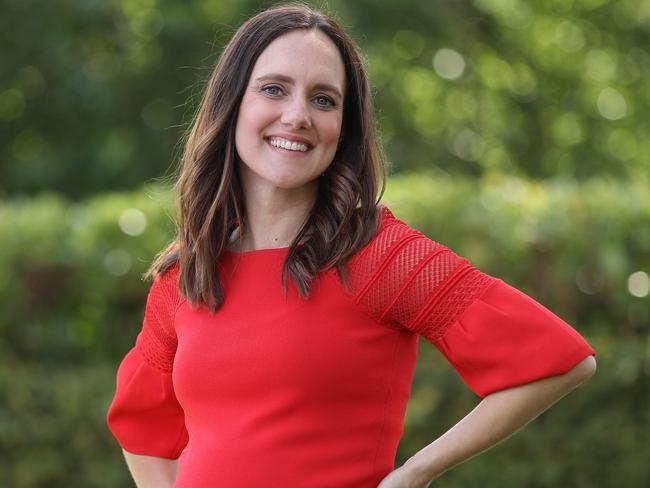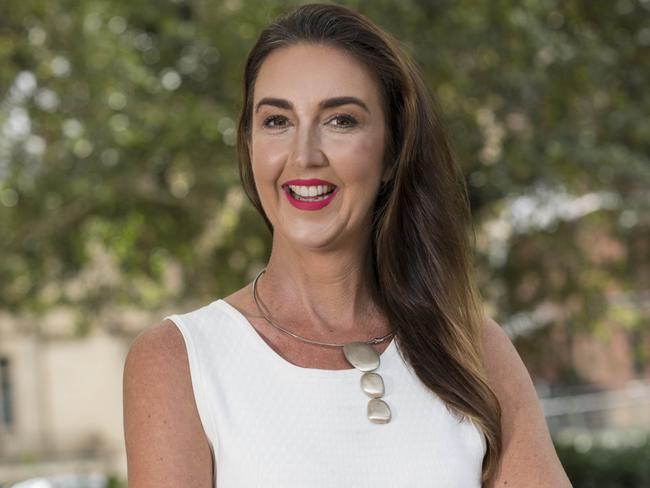Gen Z bosses: how workplace leadership will change in the future
In less than a decade, Generation Z will begin running Australian companies – and workplaces may never be the same again.
SmartDaily
Don't miss out on the headlines from SmartDaily. Followed categories will be added to My News.
IN less than a decade, Generation Z will begin running Australian companies – and workplaces may never be the same again.
New research from worldwide leadership community YPO and UN Women reveals the average Australian chief executive lands their first chief executive role at age 33, meaning the oldest Gen Zs (now 26) will be stepping into the top jobs in about seven years.
Social researcher and Gen Z expert Claire Madden says Gen Z bosses could push for a greater emphasis on purpose and relationships, and introduce flatter organisational hierarchies.
“They have a strong bent for wanting to bring social change and that will be something Gen Z will continue to spearhead as they lead and they ensure the organisation is making a positive impact on the world,” she says.
“And not just in a tick box kind of way but a measurable and significant way.”

Madden says Gen Z also place a high value on the social aspect of work and having genuine relationships with bosses and co-workers.
“Even though they are a digital generation, they are not satisfied with just online relationships, Zoom calls and digital connections,” she says.
“They long for offline meaningful connections as well, so no doubt will facilitate that as they become leaders in our businesses.
“It is likely they will continue to naturally bring in flatter (hierarchical) structures and more collaborative leadership styles.”
This change has already started, according to a new survey of 1000 Australian office workers by Workplace from Facebook, with 14 per cent saying their environment is now less hierarchical than before the Covid-19 pandemic.
Madden expects this trend to only accelerate when Gen Z is in charge.
The YPO research reveals most Australian chief executives (67 per cent) do not have their sights set on the role early in their career but rather end up following that path over time.
For young people already aspiring to leadership, however, there are many ways they can prepare.
START A BUSINESS
Running a business is a great first step to understanding leadership, according to mentoring organisation Inspiring Rare Birds founder and chief executive and YPO member Jo Burston.
“Entering into the world of entrepreneurship while young, if they fail it doesn’t matter,” she says.
“You can have three failed businesses by 25 and still be a great leader.”

Burston, who was 32 when she first became a chief executive, also says it does not matter what the business is – the point is to develop an entrepreneurial mindset.
“The mindset teaches courage, risk, bravery, opportunity, resilience and overcoming adversity,” she says.
“(Running a business) is good for their self esteem but they will also learn how to fail and ideate and work with a sense of learning by doing and not necessarily only learning by reading.
“If they can make mistakes earlier, they will become resilient and there is less of a sense of entitlement but rather a sense of ‘if I want to do this, I can do it for myself’.”
FIND MENTORS
Burston says young people can learn from the experiences of people who have “already walked the journey” and recommends building professional networks from day one with a company.
“(When approaching a mentor,) understand who you are talking to and why you are talking to them because mentors do get approached often but they will typically take on a person that shows initiative and is a student for life and a thirsty learner,” she says.
“We should have several mentors over the course of a career (and) be sure they are from diverse backgrounds and demographics – men and women, different cultural backgrounds, different ages and levels of experience in business.
“I have had a mentor for 16 years … (and) there is no way I would be where I am today without that person in my corner.”
PRACTICE PUBLIC SPEAKING
Although technology savvy is a positive for Gen Z, Burston says some young people have become accustomed to communicating via typing so have not developed their speaking abilities.
She recommends this is something aspiring leaders should focus on.
“The most charismatic, influential and successful leaders are those that speak clearly about purpose and strategy and have the confidence to do that in any environment,” she says.
“Public speaking is an absolutely necessary tool in their kit to become a great leader.”

READ UP
Brisbane 24-year-old Tehbyn Nova is chief operating officer of solar company Instyle Solar and recommends developing leadership skills through reading.
“Finding myself with greater responsibility has naturally put me in a position of leadership,” he says.
“As my career progressed, I realised how integral people and teams were to being successful in any position so I began to educate myself informally on how to lead a team.
“Some books I would recommend to anyone looking to improve their leadership skills include Extreme Ownership and Leadership Strategy and Tactics, both by American writer Jocko Willink.”
Originally published as Gen Z bosses: how workplace leadership will change in the future




